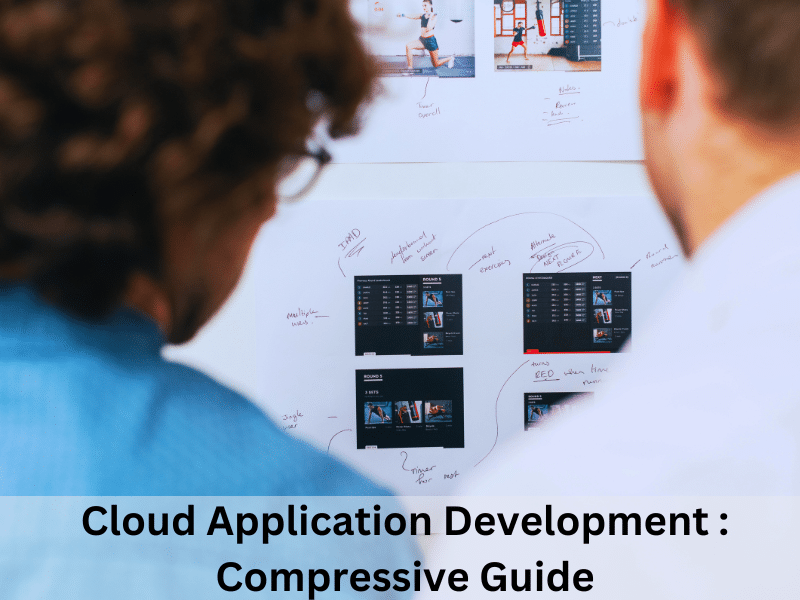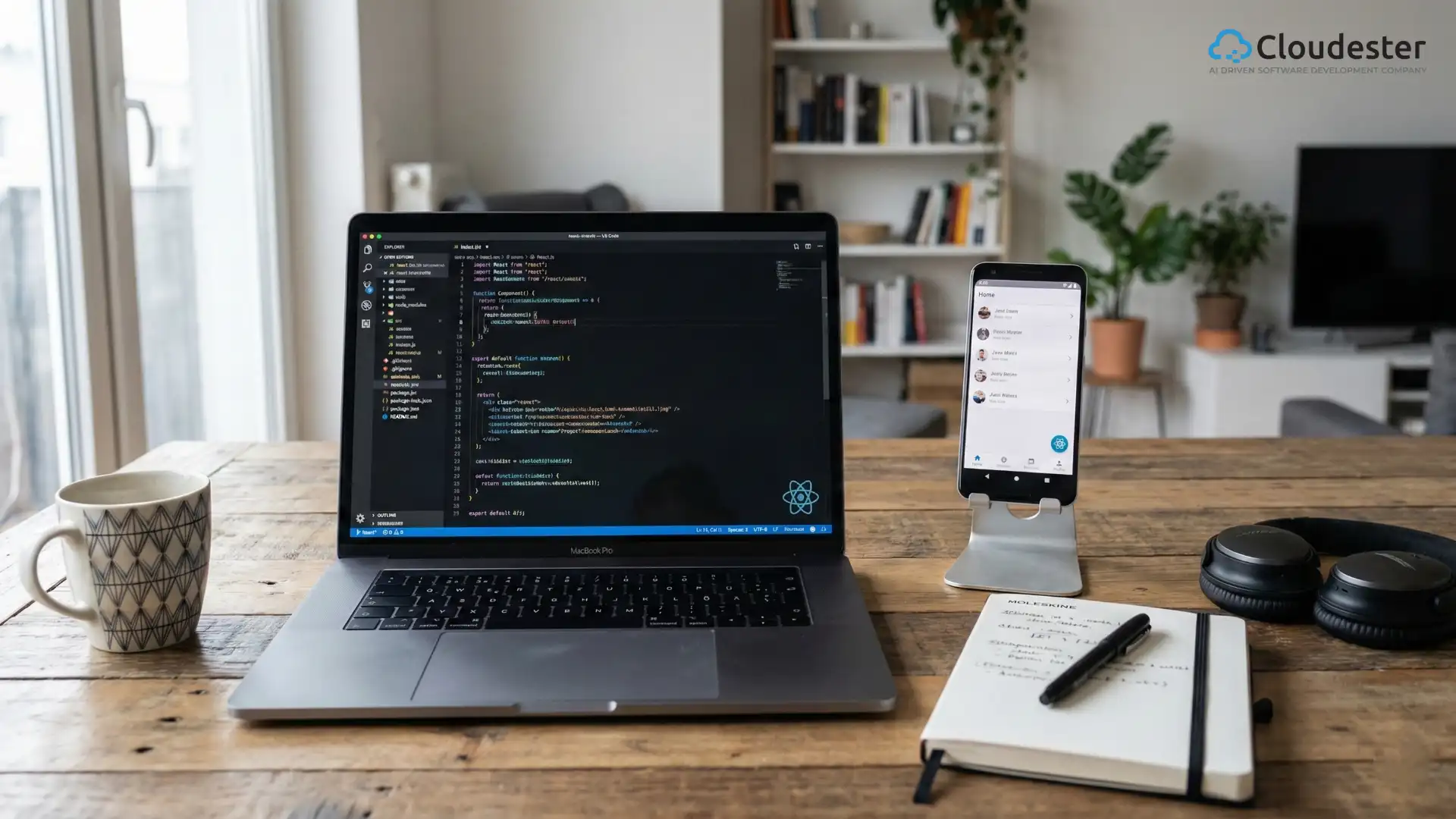Cloud Application Development: A Comprehensive Guide

In today’s digital era, web application development stands as a cornerstone of business expansion and success. With an ever-growing demand for top-tier web apps, developers seek innovative solutions to craft efficient, high-quality applications. One such solution gaining traction is harnessing cloud application development platforms. These platforms offer a plethora of services and benefits, enhancing the development process significantly. However, with a myriad of options available, choosing the right cloud platform for your web app can be daunting. This article serves as your guide, exploring essential aspects and considerations to aid you in selecting the ideal cloud application development platform.
Cloud Platforms: Powering App Development
Cloud application development platforms have transformed the landscape of web application development. They provide developers with scalable infrastructures, freeing them from concerns about underlying infrastructure and enabling a focus on development. Leading platforms such as Google Cloud Platform (GCP), Amazon Web Services (AWS), Microsoft Azure, and IBM Cloud offer unique features, services, and pricing models, demanding careful evaluation to align with your specific development requirements.
Advantages of Choosing the Right Cloud Platform
Selecting the appropriate cloud application development platform for your web app yields numerous benefits. Firstly, these platforms offer scalability, ensuring your app can handle increasing user demands seamlessly. Additionally, they provide a plethora of services like storage, databases, and analytics, seamlessly integrating into your app to enhance functionality. Moreover, cloud platforms offer cost-effective solutions by eliminating the need for investing in hardware infrastructure and providing flexible pricing models based on usage. Robust security measures ensure data protection and user privacy, further solidifying the advantages of leveraging cloud application development platforms.
Key Considerations in Platform Selection
Choosing the right cloud platform entails evaluating various factors. Assessing your web app’s requirements, including user base, data storage needs, and computing resources, is paramount. This helps determine the scalability and performance capabilities required from the platform. Additionally, compatibility with preferred programming languages and frameworks, reliability, uptime, and customer support are crucial aspects to consider. Evaluating the platform’s cost implications, including pricing models and potential hidden costs, ensures alignment with your budgetary constraints.
Custom AI Software Development Solution For Enterprises
Comparison of Leading Cloud Platforms
To make an informed decision, comparing leading cloud platforms is essential. GCP offers services like Google App Engine, Cloud Functions, and Cloud Storage, catering to diverse development requirements. AWS provides a comprehensive suite of services such as AWS Lambda, Amazon S3, and DynamoDB, with extensive documentation and community support. Azure seamlessly integrates with Microsoft products, offering services like Azure Functions, Blob Storage, and Cosmos DB. IBM Cloud boasts a robust infrastructure, including services like IBM Cloud Functions, Object Storage, and Compose for databases.
Understanding Cloud Platform Services
Cloud application development platforms offer a range of services including Infrastructure as a Service (IaaS), Platform as a Service (PaaS), and Software as a Service (SaaS). IaaS provides virtualized computing resources, PaaS offers a complete development and deployment environment, and SaaS provides ready-to-use software applications accessible via the cloud. Understanding these services is crucial for informed decision-making when selecting a cloud application development platform.
Factors Influencing Platform Selection
Several factors influence platform selection, including scalability, security, integration capabilities, ease of use, documentation, community support, and pricing models. Evaluating these factors ensures the chosen platform meets your app’s requirements and facilitates seamless development and maintenance processes.
Security Considerations
Security is paramount when selecting a cloud platform for app development. Evaluating security features like data encryption, access controls, and threat detection mechanisms is essential. Regular vulnerability assessments, penetration testing, and robust backup and disaster recovery mechanisms mitigate security risks and ensure data protection.
Why Choose Cloudester Software?
Cloudester Software specializes in cloud application development, offering expertise in selecting and leveraging the ideal cloud platform for your app development needs. Our experienced team ensures seamless integration of cloud services, maximizing app performance, scalability, and security. Visit Cloudester Software to unlock the potential of your app with our tailored solutions.
FAQs
1: What role do cloud platforms play in app development?
A: Cloud platforms provide essential infrastructure and services, enabling developers to build, deploy, and maintain applications efficiently.
2: Why is it crucial to choose the right cloud platform for app development?
A: The right cloud platform ensures app scalability, performance, security, and cost-effectiveness, directly impacting app success.
3: What factors should be considered when selecting a cloud platform for app development?
A: Factors like scalability, security, integration capabilities, ease of use, documentation, community support, and pricing models should be evaluated.
4: Can you provide examples of successful app development projects on cloud platforms?
A: Spotify, Airbnb, and Pokemon Go are examples of successful apps developed on cloud platforms like GCP, AWS, and Azure, respectively.
5: What are some best practices for leveraging cloud platforms in app development?
A: Proper planning, automation, monitoring, regular updates, and optimization of resource utilization are key best practices for leveraging cloud platforms.
6: What security considerations should developers keep in mind when choosing a cloud platform?
A: Developers should evaluate security features like data encryption, access controls, threat detection, and backup mechanisms to ensure app security on the chosen platform.









